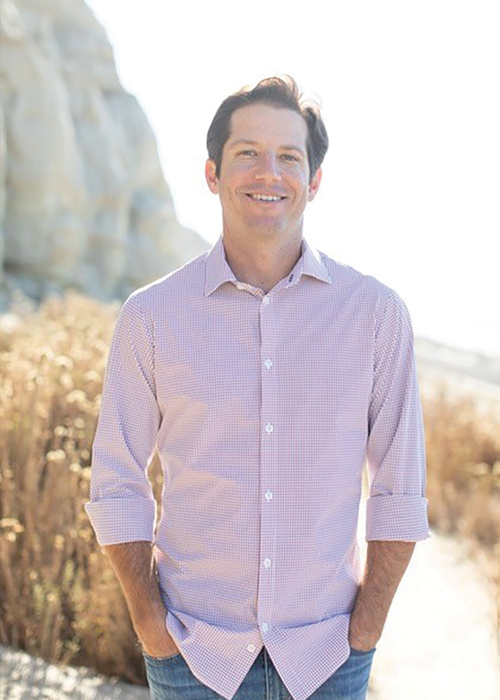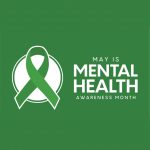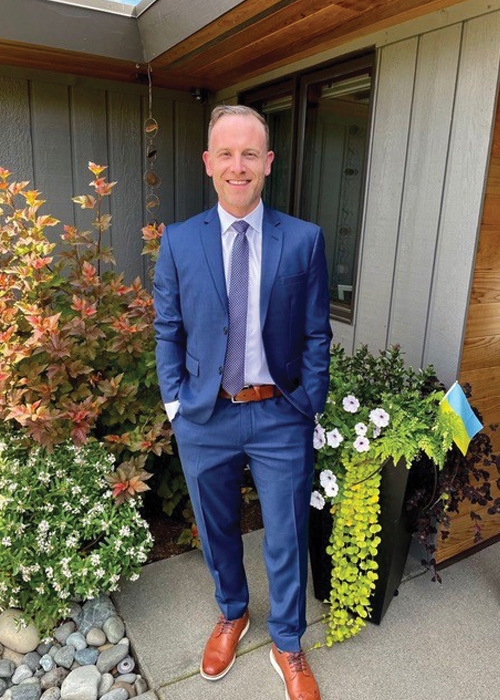Project 55’s resources and training
can help individuals support co-workers
struggling with mental health challenges
By Maura C. Ciccarelli
The following story mentions mental health struggles and suicidal ideation. Reader
discretion is advised
Insurance work often means taking care of customers after a crisis. But who takes care of industry employees when they face a life crisis of their own, such as the death of a loved one or a divorce, or have other mental health challenges, such as depression, addiction and more?
While mental health services through insurance programs and employee assistant programs (EAPs) jump to mind, Project 55 co-founders Justin Goodman and Brenden Corr are concerned that even with these resources being available to some, more than half of all American adults aren’t getting the help they need.
“Getting professional help can take a long time and insurance industry employees say EAPs don’t go far enough,” says Justin.
So, they created a solution. Project 55 is a nonprofit designed to serve people working for agencies, brokerages, insurers and other companies in the insurance sector, which is where they work, too. Justin is CEO of TotalCSR, an online onboarding and training platform for insurance agencies. Brenden is director of sales for Faura, a risk-mitigation services company.
The organization’s totally free online community and educational platform gives people and organizations a proactive way to understand and improve mental health challenges for others as well as themselves.
Project 55’s new and innovative training program for lay people—aka mental health first responders—debuts in June, going even further to help, the co-founders say.
“Mental Health Awareness month shouldn’t be limited to just May—it should extend throughout the entire year,” Brenden emphasizes. “We need resources available consistently—not only in May, but also in June, July, August, and beyond. Our goal is to equip everyone with the tools they need to support and talk openly about mental health every single day.”
Action, not just advocacy
The name was inspired by a stat from the 2023 The State of Mental Health in America study from Mental Health America, a mental health promoting nonprofit, which reported that almost 55% of U.S. adults with a mental health condition aren’t getting the care they need. Some insured people can’t get to see a therapist quickly. Those without coverage may not be able to afford care. There’s also the continuing stigma against talking openly about mental health issues.
Both Justin and Brenden have seen how sharing their stories can have a big impact. They met about two years ago when they sat on a well-attended mental health panel discussion at Applied Net. When Justin emailed fellow panelists to ask if they wanted to get involved in creating Project 55, Brenden jumped on board.
Justin has also heard firsthand from clients how difficult it is to connect employees with helpful resources.
“There aren’t that many mental health professionals available, so you have to wait four to six months if you’re trying to get [therapy] through insurance,” he says. “Resources do exist, but people either don’t know how to access them or are concerned about asking their employer about them. Oftentimes, what is available doesn’t come close to meeting their needs.”
Brenden also noted that most of the nation’s agencies and brokerages have under 50 employees and few have owners or HR managers who are trained to handle mental health issues.
“If a friend or co-worker comes to you with a problem, such as suicidal ideation or addiction, most people feel unprepared to handle that,” says Brenden. “We’re trying to give you not only the ability to understand where that person is coming from, but also the tools on how to re-engage back with them.”
Justin says conversations with empathetic listeners can help the person label and identify the pain, which has been proven to reduce the intensity of the emotions.
Today, the Project 55 leaders want to help as many people in the insurance industry as possible.
“Our industry is in crisis and there is not enough help to go around. We did this because so many people kept approaching us about feeling
ill-equipped to help those who were struggling and, worse yet, those struggling with guilt over a friend or family member who had taken their own life. Advocacy alone wasn’t enough.”
—Justin Goodman
Co-founder
Project 55

A little help from friends
“Our industry is in crisis and there is not enough help to go around,” Justin says. “We did this because so many people kept approaching us about feeling ill-equipped to help those who were struggling and, worse yet, those struggling with guilt over a friend or family member who had taken their own life. Advocacy alone wasn’t enough.”
Justin himself grew up struggling with depression, severe social anxiety, and bipolar II disorder. Those challenges were exacerbated by a serious and painful degenerative spinal disorder that forced him to abandon his dream of playing college golf, which was tightly tied to his identity.
Because a risky, aggressive surgery would stop the progression but not the pain, Justin’s spinal surgeon recommended a wait-and-see approach while managing pain with medication. While the pills helped alleviate some of the pain and let him physically function, he ultimately became addicted, taking 15 to 20 extra strength Vicodin a day.
He says that as the addiction continued, his depression became worse because he didn’t have a hopeful future. “In a moment of weakness, I tried to put a permanent end to my suffering,” he says.
Fortunately, his fraternity brothers were there to intervene. One of them also had a family member who struggled with addiction and had been through the intervention process. Shortly thereafter, he was brave enough to confront Justin, insisting that he come clean to his family and get the help needed, or the friend would personally go and talk to his family. “He valued saving my life even if it cost him our friendship,” Justin added.
That intervention made the difference, convincing Justin to go home, get clean and take responsibility for his mental and physical health.
As for Brenden, he began having major mental health issues in high school, where being an athlete also was a major part of his identity. He had to quit sports after five concussions and hadn’t yet learned ways to cope with such a drastic shift in his life.
“Instead of running out of the tunnel on a Friday night for a football game, I became the guy hosting kegs after the games, because I wanted to still be a part of it,” he says.
Over the next five years, he became addicted to anti-anxiety medicine, getting about 67 refills over 18 or so months. In November 2019, he checked himself into a rehab facility in California, where he recovered over 90 days.
“It was the best 90 days I’ve ever done. It saved my life. I feel incredibly grateful,” Brenden says, noting that he celebrated five years of sobriety in November 2024. “When I removed alcohol and the addiction, that allowed me to be the person I was always supposed to be and shine a light on my best qualities that were previously being dimmed out.”
Solutions and in-depth training

“If a friend or co-worker comes to you with a
problem, such as suicidal ideation or addiction, most people feel unprepared to handle that.
We’re trying to give you not only the ability to
understand where that person is coming from but also the tools on how to re-engage
back with them.”
—Brenden Corr
Co-founder
Project 55
Project 55’s public and members-only webpages offer a wealth of information for visitors who are seeking help for others or even for themselves. Resources include educational webinars, events, a quick resource guide, links to professional directories for in-person and online therapists, and books and websites for more information.
People can also participate in an online community where they can connect with others who are struggling with challenges and those who have successfully overcome them.
Justin and Brenden also host The Project 55 Podcast. “It’s just us two knuckleheads asking mental health experts questions and getting free advice,” Justin says with a smile.
In June, the nonprofit expects to launch a free online certification course for “mental health first responders”—insurance professionals who want to learn the skills needed to support their colleagues, employees, and loved ones when they are struggling with mental health challenges.
“This is the most comprehensive and tactical mental health training that has ever been provided to the layperson,” says Justin, who has reviewed many available programs and found them wanting.
“We are equipping people to step in because there are not enough therapists or lay counselors to meet the need,” Justin says.
The eight-hour training program is designed for people to step in and support when others are in crisis. Life events can include death of a loved one, severe illness, divorce/separation, marriage, job loss, etc.
The program teaches people how to engage with those who are in crisis by explaining what to watch for, ways to start the conversation, how to support someone, and knowing when it’s time to refer them to professionals, such as when a person has suicidal thoughts. It can also help people who are aware of others’ problems but don’t know how to start a conversation.
Justin believes people who take this course will be equipped to intervene with the skills necessary to provide support and resources to those in crisis.
“We have a paint-by-numbers approach to engage people in crisis, actively listen, provide support, em-power them, and refer to professionals when appropriate,” says Justin.
Project 55’s ultimate goal, Justin says, is “to save lives by getting this free training to as many insurance professionals as possible. All anyone needs to access the training is a name and email address.”
Advocacy helps but it isn’t enough. During the whole year—not just during May’s Mental Health Awareness Month—average people can equip themselves with the knowledge and skills to help. To access Project 55’s resources, tools and more, sign up at project55.org.






